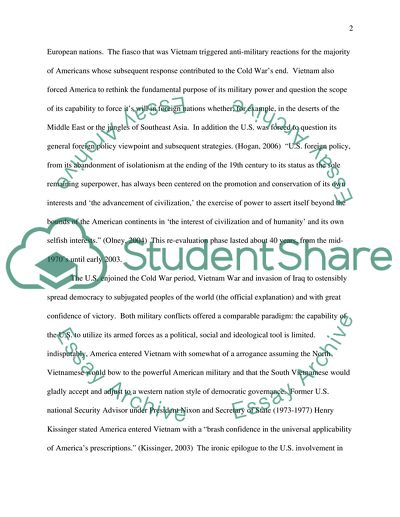Cite this document
(The US Military Capacity to Enforce Its Will in Foreign Regions Research Paper - 1, n.d.)
The US Military Capacity to Enforce Its Will in Foreign Regions Research Paper - 1. Retrieved from https://studentshare.org/military/1749182-vietnam-war
The US Military Capacity to Enforce Its Will in Foreign Regions Research Paper - 1. Retrieved from https://studentshare.org/military/1749182-vietnam-war
(The US Military Capacity to Enforce Its Will in Foreign Regions Research Paper - 1)
The US Military Capacity to Enforce Its Will in Foreign Regions Research Paper - 1. https://studentshare.org/military/1749182-vietnam-war.
The US Military Capacity to Enforce Its Will in Foreign Regions Research Paper - 1. https://studentshare.org/military/1749182-vietnam-war.
“The US Military Capacity to Enforce Its Will in Foreign Regions Research Paper - 1”, n.d. https://studentshare.org/military/1749182-vietnam-war.


